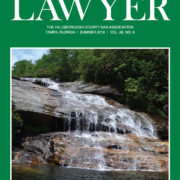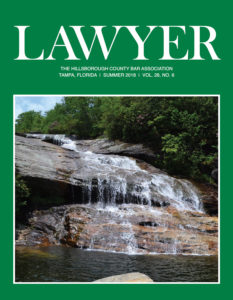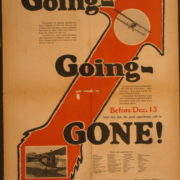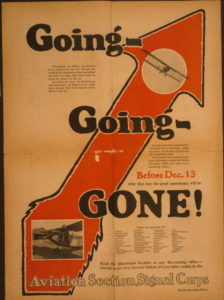
(1917) Going-Going-Gone!. United States, 1917. [Photograph] Retrieved from the Library of Congress, https://www.loc.gov/item/2002695576/.
Since 2016, the Second and Fifth Districts have been in conflict as to whether a motion for extension of time to respond to a proposal for settlement (PFS) under
section 768.79, Florida Statutes, and
Florida Rules of Civil Procedure 1.090 and 1.442 [.pdf] will toll the time to respond while the motion remains pending. The Supreme Court inÂ
Koppel v. Ochoa [.pdf] has now settled the conflict, holding that no motion will toll time for responding to a PFS.
The Conflict between the Second and Fifth Districts.
In 1997, the Fifth District in Goldy v. Corbett Crane Services held that a motion to enlarge time to respond to a proposal for settlement tolled the responsive period until the motion could be heard. The court noted that there was no prejudice by applying this rule, because the offerror “always has the power to withdraw the offer at any time before acceptance if the [offeror’s] position changes.”
In 2016’s Ochoa v. Koppel [.pdf], the Second District considered a situation where a party accepted a proposal for settlement after 30 days had lapsed, but where a motion for extension of time had been filed before the 30-day mark and had not yet been heard. The trial court enforced the settlement. On appeal, the Second District reversed. The court held that while a party may seek and obtain an extension of time to respond to a proposal for settlement under rule 1.090, that the motion itself did not create any tolling effect. The Second District certified conflict with Goldy.
The Supreme Court agrees with the Second, disapproves the Fifth.
The Supreme Court took review of the conflict between Ochoa and Goldy to consider “whether the filing of a motion under Florida Rule of Civil Procedure 1.090 to enlarge the time to accept a proposal for settlement automatically tolls the 30-day deadline for accepting the proposal until the motion is decided.” Koppel v. Ochoa. It conducted a strict analysis of section 768.79; Rule 1.442 and Rule 1.090, refusing to consider or apply other rules because, it held, neither rule 1.090; nor 1.442; were ambiguous so the rules of construction were inapplicable.
Ultimately, the court recognized that both sides had valid concerns about abuse of the process that might support the logic of a tolling rule, but that the rules simply did not allow tolling. It approved the Second District’s decision.
This decision impacts anyone with a PFS in a pending case in any Florida court, as well as anyone filing any extension of time in the trial court.
The Supreme Court took special care to rule that its decision would apply both prospectively and retroactively. Thus, anyone with a pending PFS issue in the Fifth DCA that has relied on Goldy should take special note–you may have already lost your right to accept a proposal for settlement if more than 30 days has passed without a court order granting an extension.
The Supreme Court’s main ruling was also rather broad, and likely intentionally so. It expressly stated Rules 1.090 and 1.442 do not, and did not, provide for tolling of the time periods by the filing of a motion for extension and are applicable to this and all other cases.” Thus, no motion for extension of time will ever toll time in the trial court, whether it involves a PFS or a completely different proceeding (unless the rule specific to your proceeding provides for it).
These are dangerous traps for the unwary, both trial attorneys who are accustomed to trial judges allowing tolling as a matter of course, and for appellate practitioners in trial courts because they are accustomed to working with the Florida Rules of Appellate Procedure (which do provide for tolling on most motions on appeal, see rule 9.300. Don’t get caught by this new trap! If you have any concerns about how this new decision may impact your trial court case, give us a call and we can help.
Full disclosure: Jared Krukar was involved in the litigation of this case at the Second District Court of Appeal level.
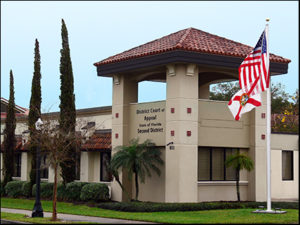 The Portal is back for District Court of Appeal Filings! The Clerks first made the announcement in the Florida Bar News that all DCAs will be transitioning back to the Portal by January, with the Second and First Districts making the switch this month.
The Portal is back for District Court of Appeal Filings! The Clerks first made the announcement in the Florida Bar News that all DCAs will be transitioning back to the Portal by January, with the Second and First Districts making the switch this month.

